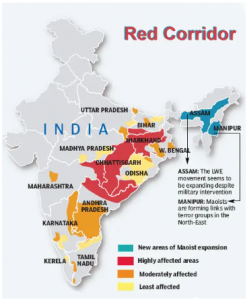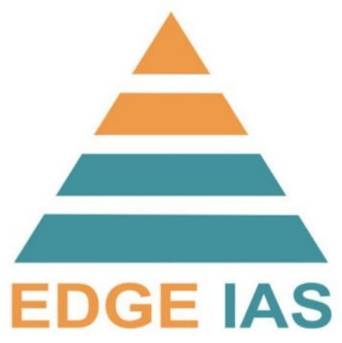SC to look into the use of ‘Money Bills’ to pass laws
Acceptance of Plea and Implications
- CJI D.Y. Chandrachud has accepted the plea to list petitions challenging the passage of contentious legislation in Parliament as Money Bills.
- There is an expectation that the matter could be heard and decided before Chandrachud demits office in November this year.
Key Issues Referred to 7-Judge Bench
- Validity of Post-2015 Amendments:
- Amendments like the Prevention of Money Laundering Act (PMLA) through Money Bills, granting the Enforcement Directorate wide powers.
- Finance Act of 2017:
- Passage of the Finance Act of 2017 as a Money Bill to alter appointments to 19 key judicial tribunals.
- Aadhaar Case:
- The Supreme Court upheld the Aadhaar Act as a valid Money Bill in 2018.
- Justice D.Y. Chandrachud dissented, suggesting larger questions on Money Bills should be decided first.
Current Developments
- Current CJI D.Y. Chandrachud has agreed to list petitions challenging the use of the Money Bill route by the Centre.
- Indicated the constitution of a 7-judge Constitution Bench to hear this matter.
Definition and Provisions of Money Bill
- Definition:
- A Money Bill deals exclusively with taxes, government revenues, or expenditures.
- Defined under Article 110 of the Indian Constitution.
- Provisions under Article 110:
- Article 110(1)(a): Tax imposition, abolition, remission, alteration, or regulation.
- Article 110(1)(b): Government borrowing regulation or financial obligations.
- Article 110(1)(c): Custody and withdrawal of money from the Consolidated Fund or the Contingency Fund of India.
- Article 110(1)(d): Appropriation of money from the Consolidated Fund of India.
- Article 110(1)(e): Declaration of expenditure charged on the Consolidated Fund of India.
- Article 110(1)(f): Receipt, custody, or issue of money from the Consolidated Fund of India.
- Article 110(1)(g): Matters incidental to the above provisions.
Challenges in Parliament
- Circumvention of the Rajya Sabha:
- Government accused of using Money Bill provision to evade Rajya Sabha scrutiny where it is numerically weaker.
- Contentious Amendments Passed as Money Bills:
- Aadhaar Act, 2016.
- Amendments to the Prevention of Money Laundering Act, 2002.
- Amendments to the Foreign Contributions Regulations Act, 2010.
- Finance Act, 2017: Altered appointment processes for judicial tribunals.
- Electoral bonds scheme via Finance Act, 2017.
- Supreme Court Involvement:
- Cases questioning the classification of bills as Money Bills (e.g., Rojer Mathew case, Aadhaar case – K. Puttaswamy case).
Speaker’s Decision on Money Bills
- Finality of the Speaker’s Decision:
- Lok Sabha Speaker’s certification of a bill as a Money Bill has been contested.
- Judiciary debates whether this decision is final or subject to judicial review.
Way Forward
- Strengthening Judicial Oversight:
- Establish clear guidelines for classifying bills as Money Bills per Article 110.
- Reinforcing Legislative Procedures:
- Enhance Rajya Sabha’s role in legislative scrutiny, especially for significant amendments affecting governance or individual rights.
The Indian Constitution has provisions for holding joint session of the two houses of the Parliament. Enumerate the occasions when this would normally happen and also the occasions when it cannot, with reasons thereof. (2017)
What is Maharashtra’s new bill to combat Naxalism in urban areas?
Maharashtra Special Public Security (MSPC) Bill, 2024
- Introduction:
- The Maharashtra state government has introduced the MSPC Bill, 2024.
- Aim: Address the growing incidence of Naxalism in urban areas.
- Government’s Claim:
- Naxalism has spread from remote rural areas to urban centers.
- Influence in urban areas is through “frontal organizations”.
- Insufficiency of Existing Laws:
- Current laws like the Unlawful Activities Prevention Act (UAPA) and Maharashtra Control of Organised Crime Act are deemed insufficient.
- Need for a new legislation to effectively control urban Naxal organizations.

Key Provisions of the MSPC Bill, 2024
- Declaration of Unlawful Organization:
- Empowers the government to declare any suspect organization as unlawful.
- Targets entities supporting or associated with Naxal activities in urban areas.
- Offenses and Penalties:
- Primary Offenses:
- Membership in an unlawful organization.
- Fundraising for unlawful organizations.
- Managing or assisting such organizations.
- Engaging in unlawful activities.
- Penalties:
- Imprisonment ranging from two to seven years.
- Fines up to Rs 5 lakh.
- Primary Offenses:
- Cognizable and Non-Bailable Offenses:
- Offenses under the bill are cognizable, allowing arrest without a warrant.
- Offenses are non-bailable, meaning individuals can be detained pending trial.
- Lower Threshold for Unlawful Activity:
- Sets a broader and less defined threshold for “unlawful activity” compared to UAPA.
- Includes acts perceived to threaten public order, disrupt law enforcement, or incite disobedience to law.
- Speedy Prosecution:
- Streamlines the prosecution process.
- Allows district magistrates or police commissioners to grant permissions, bypassing the need for central or state government sanctions.
Why the MSPC Bill is Seen as a Threat to Civil Liberty
- Broad Definitions:
- Critics argue that definitions of unlawful activities are overly broad and vague.
- Potentially encompasses legitimate acts of dissent, protest, or advocacy.
- Lack of Judicial Oversight:
- Authority to declare an organization unlawful is placed with an advisory board, not through a judicial process.
- Reduces judicial oversight and increases executive control.
- Impact on Freedom of Expression:
- Criminalizes acts such as generating fear or encouraging disobedience without clear definitions.
- Could curtail freedom of expression and assembly.
- Preventive Detention:
- Provisions for non-bailable and cognizable offenses increase the risk of preventive detention.
- Potential for arbitrary arrests and prolonged detention without due process.
- Constitutional Concerns:
- Critics argue that the bill violates constitutional protections of freedom of speech, assembly, and association.
- Seen as stifling dissent and legitimate protest under the guise of national security.
Way Forward
- Consultative Process:
- Maharashtra government should engage with legal experts, civil society organizations, and stakeholders.
- Aim to refine the bill’s provisions to align with constitutional principles and international human rights standards.
- Safeguarding Rights:
- Introduce safeguards such as judicial oversight in declaring organizations unlawful.
- Ensure that fundamental rights like freedom of expression and assembly are protected while addressing security concerns effectively.
Naxalism is a social, economic and developmental issue manifesting as a violent internal security threat. In this context, discuss the emerging issues and suggest a multilayered strategy to tackle the menace of Naxalism. (2022)
ICAR launches ‘One scientist, One product’ Scheme
ICAR’s ‘One Scientist-One Product’ Program
Introduction:
- The Indian Council of Agricultural Research (ICAR) is launching the ‘One Scientist-One Product’ program.
- Aim: Enhance research in agriculture and animal husbandry.
About ICAR:
- Autonomous organisation under the Department of Agricultural Research and Education (DARE), Ministry of Agriculture and Farmers Welfare.
- Headquartered in New Delhi.
- Established in 1929, formerly known as the Imperial Council of Agricultural Research.
- Functions: Coordinate agricultural education and research, guide and manage research in agriculture, horticulture, fisheries, and animal sciences.
- Structure: Operates under DARE, consists of research institutes, national bureaus, project directorates, and agricultural universities. Governed by a Governing Body and an Executive Committee.
Functions and Achievements:
- Coordination and Leadership: Coordinates and provides leadership in agricultural research and education in India.
- Awards: Confers awards like the Rafi Ahmed Kidwai Award, Borlaug Award, and Hari Om Ashram Trust Award for excellence in agricultural research and education.
- Bio-fortified Crops: In 2023-24, cultivated 16 million hectares with bio-fortified varieties such as wheat, rice, pearl millet, lentil, and mustard.
- Climate Resilience: Deployed climate-resilient technologies to boost production even in abnormal years.
- Variety Release: From 2014-15 to 2023-24, released 2,593 high-yielding varieties, including 2,177 climate-resilient and 150 bio-fortified varieties.
The ‘One Scientist-One Product’ Scheme:
- Objective: Enhance agricultural productivity by assigning specific research targets to individual scientists.
- Target-Oriented Research: Each scientist develops a product like a seed variety, technology, research paper, or conceptual model.
- Avoiding Duplication: Unique research targets for each scientist to prevent duplication.
- Monitoring: Progress monitored every three months at the official level and bi-annually by the researchers themselves.
- Implementation: All 5,521 scientists of ICAR registered. Scientists identify and inform about their target product at the start of each year. Group efforts allowed for certain products.
- Long-Term Goals: Develop 100 new seed varieties within the government’s 100-day plan. Increase climate-resilient paddy seeds area to 25% of total kharif acreage.
Announcement of New Crop Varieties:
- Event Details: ICAR to announce 323 new crop varieties in Delhi, including cereals, oilseeds, forage crops, and sugarcane.
- Variety Breakdown: 289 climate-resilient varieties and 27 bio-fortified varieties.
- Upcoming Initiatives: Develop 100 new seed varieties and 100 farm technologies within 100 days as part of a national action plan.
Progress in Bio-fortification and Climate Resilience:
- Bio-fortified Crops: Significant progress with 16 million hectares under bio-fortified varieties.
- Climate-Resilient Technologies: Enhanced production even during abnormal weather conditions.
SDG INDIA INDEX 2023-24
SDG India Index 2023-24 Overview
Background:
- India committed to the SDGs since adopting the 2030 Agenda on Sustainable Development.
- NITI Aayog leads SDG localization, working closely with States and UTs.
About SDG India Index:
- Provides a holistic view of social, economic, and environmental status of the country and its states and union territories.
- Released by NITI Aayog in collaboration with the United Nations in India.
- Monitors and evaluates progress towards 16 SDGs adopted by the UN in 2015.
- Uses 113 indicators to assess performance in areas like health, education, gender equality, climate action, economic growth, and environmental sustainability.
- Aligned with the Ministry of Statistics and Programme Implementation’s (MoSPI) National Indicator Framework (NIF).
SDG India Index 2023-24 Highlights:
- Overall Score: Improved to 71 in 2023-24, up from 66 in 2020-21 and 57 in 2018.
- Top Performing States: Kerala and Uttarakhand achieved the highest scores of 79 each.
- Significant Progress: Notable advancements in:
- Goal 1: No Poverty
- Goal 8: Decent Work and Economic Growth
- Goal 13: Climate Action
- Goal 15: Life on Land
- Fastest Moving States:
- Uttar Pradesh (+25 points)
- J&K (+21 points)
- Uttarakhand (+19 points)
- Sikkim (+18 points)
- Haryana (+17 points)
- Assam, Tripura, and Punjab (+16 points each)
- Madhya Pradesh and Odisha (+15 points each)
- New Entrants in Front-Runner Category:
- Arunachal Pradesh, Assam, Chhattisgarh, Madhya Pradesh, Manipur, Odisha, Rajasthan, Uttar Pradesh, West Bengal, and Dadra and Nagar Haveli and Daman and Diu.
Key Initiatives Contributing to Progress:
- Government Programs:
- Pradhan Mantri Awas Yojana
- Ujjwala
- Swachh Bharat
- Jan Dhan
- Ayushman Bharat-PMJAY
- Ayushman Arogya Mandir
- PM-Mudra Yojana
- Saubhgaya
- Start-up India
- SDG Localisation:
- Efforts led by NITI Aayog promoting competitive and cooperative federalism.
- Close collaboration with States and UTs to enhance progress on SDGs.
-
Daily Current Affairs - 28th November 2024
-
Daily Current Affairs - 27th November 2024
-
Daily Current Affairs - 25th November 2024
-
Daily Current Affairs - 23rd November 2024
-
Daily Current Affairs - 22nd November 2024
-
Daily Current Affairs - 21st November 2024
-
Daily Current Affairs - 20th November 2024
-
Daily Current Affairs - 19th November 2024
Categories
| M | T | W | T | F | S | S |
|---|---|---|---|---|---|---|
| 1 | ||||||
| 2 | 3 | 4 | 5 | 6 | 7 | 8 |
| 9 | 10 | 11 | 12 | 13 | 14 | 15 |
| 16 | 17 | 18 | 19 | 20 | 21 | 22 |
| 23 | 24 | 25 | 26 | 27 | 28 | 29 |
| 30 | 31 | |||||
